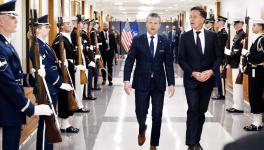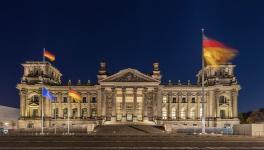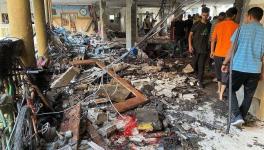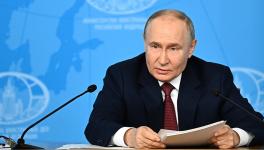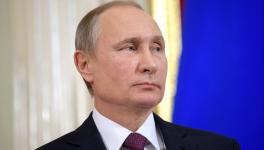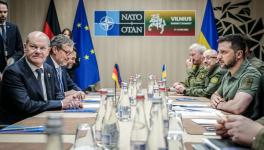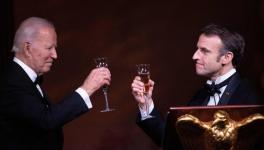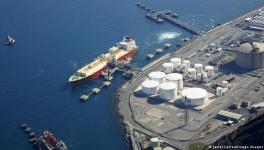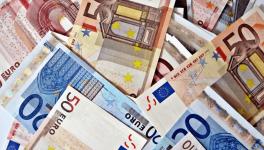Ukraine: Another Operation Regime Change
The battle in Ukraine over who will control the country is rapidly spinning out of control. Mobs, many of them identified with the neo-Nazi Svoboda party, have been on a rampage, capturing government offices and public spaces in Kiev, the capital.
Another little known group called Spilna Sprava, or Common Cause, has been in the forefront of violently capturing government offices, including the Ministry of Justice. President Viktor Yanukovich is clearly on the defensive. He has now withdrawn the ban on demonstrations, declared amnesty for protesters, and has been willing to appoint a new Prime Minister in a bid to reach reconciliation with the opposition. All this has not satisfied the opposition forces, who want an immediate presidential election. Right now, President Yanukovich is on leave, suffering from an acute respiratory infection. What this means for the protests or the government remains to be seen.
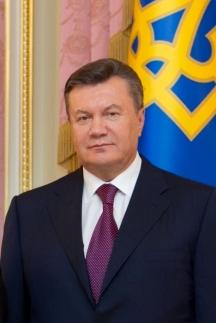
Image Courtesy: wikimedia.org
The ascendency of these far right groups using violence has pushed into the background more established opposition figures such as the former world boxing champion Vitalis Klitschko. Increasingly, the leadership of the street protests is passing into the hands of violent groups who are calling for a capitulation of the state. It is these forces that the leaders from EU and the US are now supporting in order to break Ukraine’s links with Russia. So when a Kerry claims that these forces are democratic, and that Ukraine should decide whether it is with the “world” or with Russia, we are hearing the same old rhetoric. This is for the people of Ukraine to decide, and not the so-called world, represented only by the leaders of the world’s hegemon or ex-colonial powers. Not surprisingly, the opposition including Klitschko are meeting with western leaders, including the US Secretary of State Kerry in the Munich Security Conference, and calling for sanctions on the Yanukovich government..
The current protests erupted when President Yanukovich refused to sign agreements that would have economically integrated Ukraine with the European Union. The difference over the EU agreement brings out the fault lines in the country – a western Ukraine more willing to go with the EU and an eastern Ukraine wanting to remain closer to Russia. The oligarchs – the mafia capital that has taken over much of the erstwhile Soviet Union -- are on both sides despite calls to fight the corruption of the current government on the streets. The battle is not over whether neoliberal policies are bad, or privatisation should be opposed, but which way Ukraine should go, towards the EU and the US or maintain close relations with Russia.
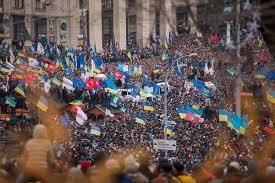
Image Courtesy: wikipedia.org
For the US and the EU, Ukraine is a big prize, fitting into the eastward expansion of NATO. The earlier government of President Yushchenko had wanted the country to join the NATO. While the western powers have always talked about Russia's attempts to wield influence in the former Soviet Union republics, they have failed to explain their need to expand the NATO. With the end of the Cold War, why does NATO need new members? Why do they need a NATO at all?
Clearly, Russia sees NATO and the US as a long term strategic threat and needs Ukraine not to be a part of a military alliance hostile to it. The EU and the US would like Ukraine to be a part of both NATO and the EU, and integrated firmly with the West. Ukraine has deeper economic interests with Russia than with the EU; and trying to entice Ukraine into the EU fold could risk Ukraine's economy. Natural gas for Ukraine comes from Russia and Russia is providing it cheap as a solidarity measure. Recently, Russia promised to provide Ukraine a 15 billion dollar loan, which could be withdrawn if Ukraine decides in favour of the EU agreements.
Against the Russian influence stands a section of opposition forces including the far right neo-Nazis. They appeal to Ukraine nationalism and are hostile to Russia. Many of them consider Stepan Bandera, a fascist collaborator of Hitler's Germany during the Second World War, to be a national hero. The former president Yuschenko even declared Bandera to be a Hero of Ukraine in 2010, a month before he left office. The current leader of the Svoboda not only worships Bandera as a Ukraine nationalist but also called Russians, Jews, etc scum. For the far right, Ukraine nationalism means a white European nation, and not a Slavic one.
Not only has the EU openly campaigned on matters that would be considered an internal matter of Ukraine, but also threatened sanctions if the Ukraine government uses force against the protestors. It matters little to the EU that violent crowds with a fair number of neo-Nazis have taken over government buildings and created a situation where any government would feel justified in using force against violent demonstrators. If we look at the measures that the US government took against the non-violent Occupy movement, the hypocrisy of the west becomes clear.
The object, once again, is regime change; in this case replacing a more pro-Russian government with a pliant one. In Syria, the allies were radical Islamic jihadi groups. In Ukraine, it is the neo-Nazis.
Germany has been particularly active in Ukraine, as it was earlier in Croatia. Then, it had supported the formations in Croatia that brought back the Ustashi flag and rehabilitated the Ustashi leaders, collaborators with Hitler's Germany during World War II. The West's alignment with neo-Nazis in Eastern Europe is not an aberration, but a continuing part of a larger strategy of using such forces, first against the Soviet Union and now Russia.
It is not that the Yanukovich government is free from corruption or from the oligarchs. After the fall of the Soviet Union, corruption and the power of the oligarchs have remained constant in successive governments. Yulia Timoshenko, currently in jail for corruption, had emerged as one of the richest persons in Ukraine during the post Soviet nineties. She was called the gas princess, securing contracts with Gazprom that boosted her fortune manifold. This did not stop her from becoming the darling of the West and to demands that her conviction be overturned.
Quite often, history does not provide good choices. The issue is not whether President Yanukovich is a nice guy. The question is about the constellation of forces seeking to overthrow him. Clearly, we have a regime change operation in progress in Ukraine. It is backed by the West and is in alliance with the extreme right. It is also a part of a larger agenda to contain Russia. The slogan may be democracy, as it was in Syria, Libya and Iraq; the reality is expanding the Empire. Which makes all independent powers -- from Iran to Russia - enemies.
Disclaimer: The views expressed here are the author's personal views, and do not necessarily represent the views of Newsclick
Get the latest reports & analysis with people's perspective on Protests, movements & deep analytical videos, discussions of the current affairs in your Telegram app. Subscribe to NewsClick's Telegram channel & get Real-Time updates on stories, as they get published on our website.









